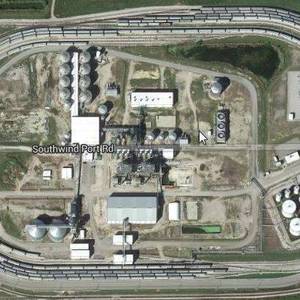Valero reports record ethanol income in first quarter

Aventine Renewable Energy Holdings Inc.
April 29, 2014
BY Erin Krueger
Valero Energy Corp. has released its financial results for the first quarter, reporting record operating income for its ethanol segment, despite production slowdowns caused by weather-related challenges in transporting ethanol by rail.
Overall, Valero reported net income attributable to stockholders of $828 million, or $1.54 per share, up from $654 million, or $1.18 per share, for the same period of 2013. First quarter operating income was $1.4 billion, up from $1.1 billion for the first three months of 2013.
Advertisement
Advertisement
The company’s refining segment earned operating income of $1.3 billion during the quarter, up slightly from $1.2 billion during the first quarter of the previous year.
The ethanol segment earned $243 million in operating income during the first quarter, up significantly from the $14 million in operating income reported for the same period of 2013. Valero attributed the increase to higher gross margin per gallon driven by weather-related supply disruptions, as well as lower industry ethanol inventories, import volumes, and corn costs relative to the first quarter of the prior year.
During a call to discuss the results, Ashley Smith, vice president of investor relations at Valero, noted the company’s ethanol production volumes averaged 3.1 million gallons per day during the quarter, a slight reduction compared to the final quarter of 2013. Smith attributed the drop in production to slowdowns created by weather-related rail congestion. Moving into the second quarter, Smith said ethanol production is expected to average 3.5 million gallons per day.
Advertisement
Advertisement
Smith also addressed Valero’s recent acquisition of a 110 MMgy ethanol plant in Mount Vernon, Ind., from a subsidiary of Aventine Renewable Energy Holdings Inc. He said that Valero acquired the facility for $34 million and noted that efforts are underway to restart the facility. The plant is expected to resume operations during the third quarter, he said.
Related Stories
The U.S. Energy Information Administration maintained its forecast for 2025 and 2026 biodiesel, renewable diesel and sustainable aviation fuel (SAF) production in its latest Short-Term Energy Outlook, released July 8.
XCF Global Inc. on July 10 shared its strategic plan to invest close to $1 billion in developing a network of SAF production facilities, expanding its U.S. footprint, and advancing its international growth strategy.
U.S. fuel ethanol capacity fell slightly in April, while biodiesel and renewable diesel capacity held steady, according to data released by the U.S. EIA on June 30. Feedstock consumption was down when compared to the previous month.
XCF Global Inc. on July 8 provided a production update on its flagship New Rise Reno facility, underscoring that the plant has successfully produced SAF, renewable diesel, and renewable naphtha during its initial ramp-up.
The USDA’s Risk Management Agency is implementing multiple changes to the Camelina pilot insurance program for the 2026 and succeeding crop years. The changes will expand coverage options and provide greater flexibility for producers.
Upcoming Events










